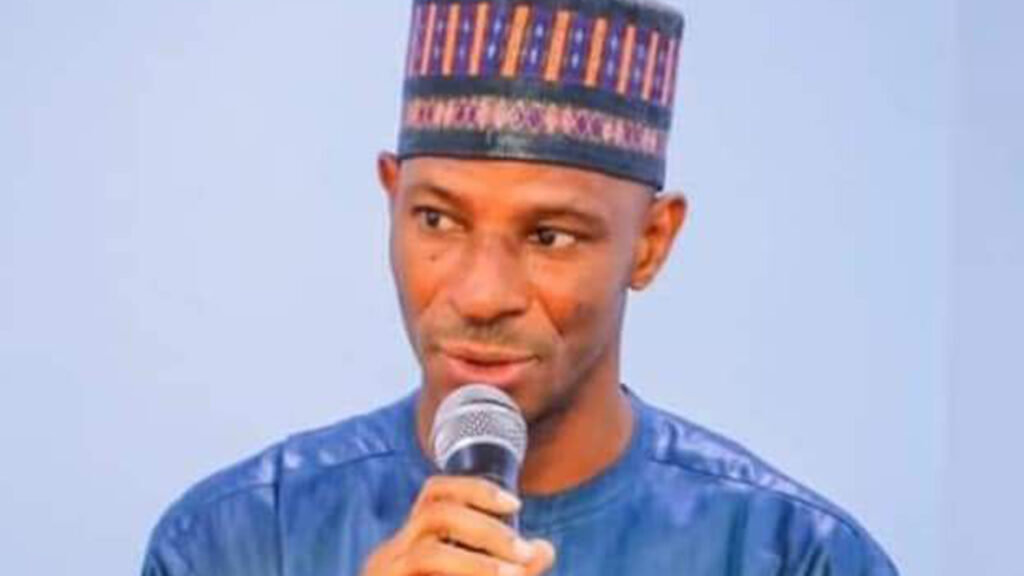
SIR: As the debate progresses across the country over what should be the minimum living wage for workers, the two main workers’ bodies, the Nigeria Labour Congress (NLC) and the Trade Union Congress (TUC) should be more circumspect in their negotiation with the government, to avoid putting workers in greater and unforeseen economic dilemma than they are in already. The first point is to make demand that is reasonable and affordable by the Nigerian economy; and payable by all governments and employers of labour.
The second point is to avoid monetising every potential benefit of workers, as this can worsen inflation and invariably reduce their purchasing power, even with more money at their disposal. The unions should include in their negotiation, schemes that will directly impact workers in the form of transportation, educational, housing and health benefits, among others.
So far, the two unions appear divided over what constitutes an appropriate minimum living wage for workers. As the debate is on to arrive at what is adequate and reasonable as take-home pay for workers, both sides should work in the best interest of the country and workers. In particular, labour should be shrewd and clear-minded on facts and data. There is no doubt that workers and their families are facing an unprecedented rise in the cost of living due to the removal of fuel subsidy, the floating of the naira in the forex market and a host of other reasons including decrepit infrastructure and pathetic energy supply. While the NLC is asking for N794,000 as monthly minimum wage, the TUC has pegged its demand at N447,000.
As of February, the headline inflation rate increased to 31.70 per cent, according to the latest data from the National Bureau of Statistics (NBS), recording a 1.80 per cent increase on the January rate of 29.90. Food inflation also went up to 37.92 per cent. The cost of transportation, housing and other household needs have gone up as well.
With that, workers’ leadership must put on their thinking cap to arrive at a minimum wage that is sufficient to assuage current hardship. The current minimum wage of N30,000 is at best a drop in the ocean, compared to today’s realities.
According to the NBS’ Cost of Healthy Diet (CoHD) analysis for January 2024, the average CoHD for Nigeria was N858, with the highest being N1,045 for Southwest and N683 for the North, per adult per day. That figure may likely climb higher for February and March. A meal at an average restaurant in Lagos and Abuja now goes for around N4,000.
According to NBS’ transport fare watch data in January, the average fare paid by commuters for bus journeys within the city per drop increased by 6.72 per cent from N902.70 in December 2023 to N963.38 in January 2024. Air fares have also gone up, with the average fare paid by passengers for specified routes single journey being N89,975.68 in January, a 20.53 per cent increase from that of January 2023.
Still, on the rising cost of living, the BNS reports that the cost of Liquefied Petroleum Gas (LPG) for cooking had jumped from a retail price for refilling a 5kg cylinder by 3.55 per cent between December 2023 and January 2024, and that depends on the location of the buyer.
The cost of housing and building materials has gone out of reach of average citizens. School fees, the cost of medicines and pharmaceuticals have gone haywire.
With these and other data on the cost of living in mind, the workers’ leadership needs to be astute and meticulous in using statistics to negotiate what amounts to a minimum living wage in contemporary Nigeria. For a start, let it be noted that the Constitution of the Federal Republic (1999), as amended, has set a generous baseline on what is reasonable as far as the living standard for the Nigerian person is concerned.
Section 16(2)(d), the Constitution states: The State shall direct its policy towards ensuring that suitable and adequate shelter, suitable and adequate food, reasonable national minimum living wage, old age care and pensions, and unemployment, sick benefits and welfare of the disabled are provided for all citizens.
Workers should use current rates to work out what the Constitution envisages and begin to hold governments accountable to the oath they have sworn to uphold. Now that fuel subsidy has been removed, the shares of allocation going to the tiers of government have increased astronomically. For February, the Federation Account Allocation Committee (FAAC), disbursed the sum of N2.07 trillion to the three tiers of government from the total revenue generated in January 2024. Despite this increase, which has been recorded since June 2023, many states are reluctant to pay the wage allowance promised by the Federal Government to cushion the impact of fuel subsidy removal.
At the flagging off of the Food Security and Agricultural Mechanisation Programme in Minna, Niger State, recently, President Tinubu appealed to governors to pay workers their wage award until a new minimum wage is worked out. The wage award of N35,000 payments to workers for six months was one of the agreements reached between organised labour and the Federal Government, as a way to ameliorate the fuel subsidy impact. More than 90 per cent of states have defaulted on payment, with a handful paying less than N20,000.
It is the same way some states have reneged on the N30,000 minimum wage agreement. As of October 2023, according to public accountability monitor, BudgIT, 15 states are yet to implement the N30,000 minimum wage since it was signed into law in 2019. And this is despite that the 36 states grew their revenue by 28.95 per cent, up from N5.12 trillion in 2021 to N6.6trn in 2022. Even though overhead bills had grown by 23.43 per cent, recent revelations showed that state governments were merely investing in frivolities and refusing to prioritize workers’ wages.
The implication is that labour must become hardnosed in negotiating with the government, in addition to participating in budget processes and monitoring. From the extravagant attitude of people in government, it is hard to explain that there is no money to pay workers a living wage. Politicians in the National Assembly and in states go home with dubious constituency project allocations that are not reciprocated with actual delivery. In addition, they earn bogus and untenable allowances against the country’s economic realities.
The tripartite committee set up by the government to negotiate the new living wage must ensure that besides arriving at what is reasonable and just for workers and the economy, there is a clause to compel states to pay. In addition, this is the time to insist on productivity as the basis for remuneration. Ghost workers and others who have nothing to offer at this critical time should have no consideration in the new minimum wage scheme.












